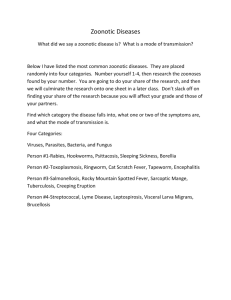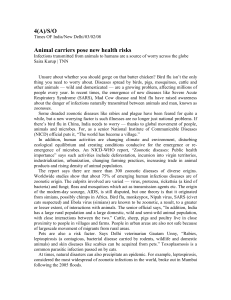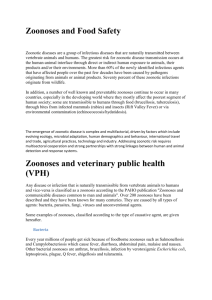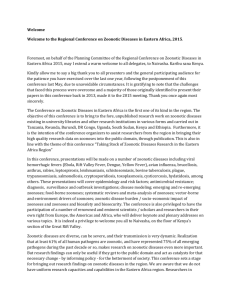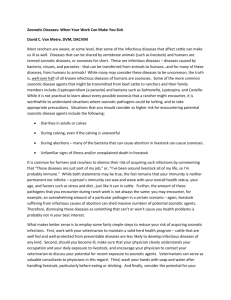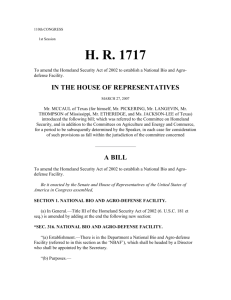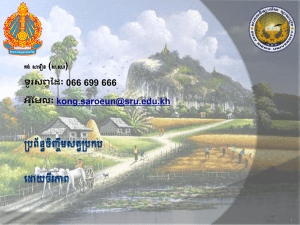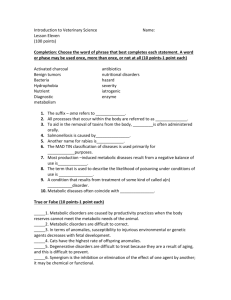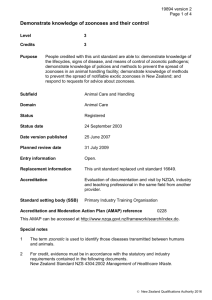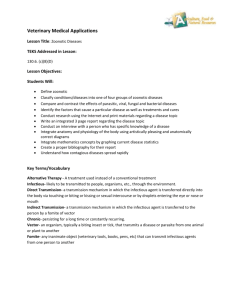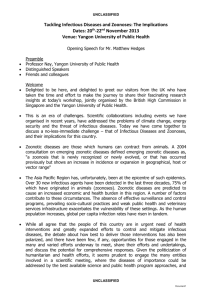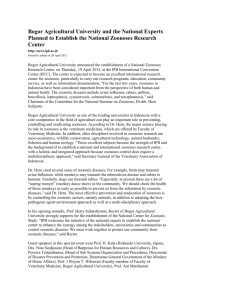University of Copenhagen
advertisement
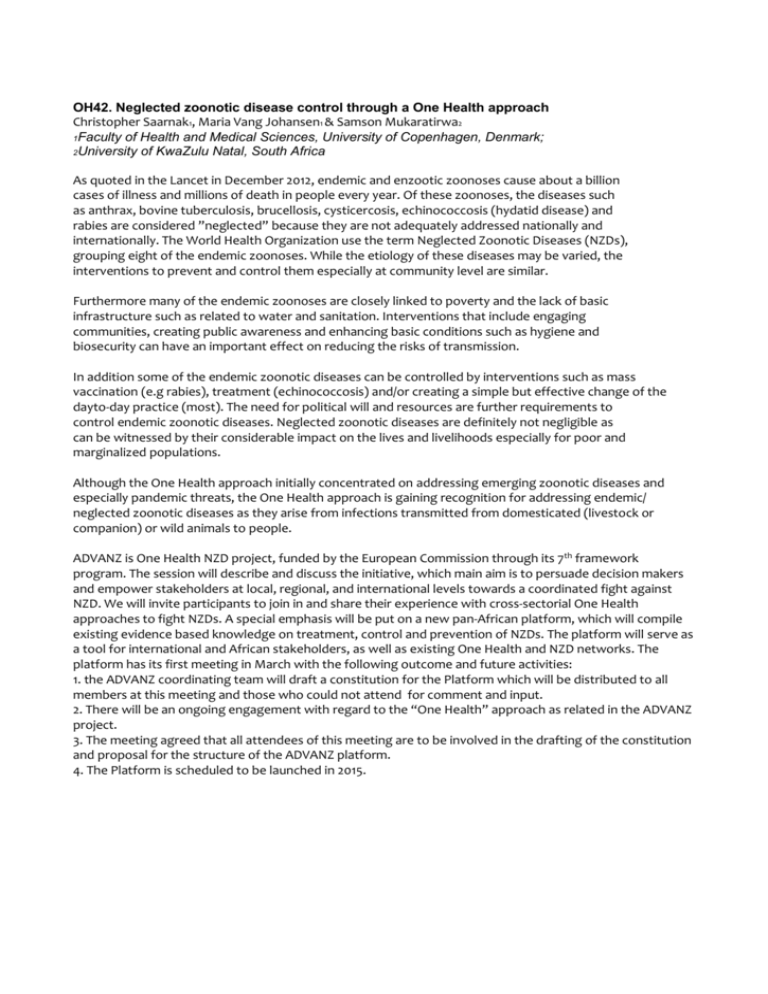
OH42. Neglected zoonotic disease control through a One Health approach Christopher Saarnak1, Maria Vang Johansen1 & Samson Mukaratirwa2 1Faculty of Health and Medical Sciences, University of Copenhagen, Denmark; 2University of KwaZulu Natal, South Africa As quoted in the Lancet in December 2012, endemic and enzootic zoonoses cause about a billion cases of illness and millions of death in people every year. Of these zoonoses, the diseases such as anthrax, bovine tuberculosis, brucellosis, cysticercosis, echinococcosis (hydatid disease) and rabies are considered ”neglected” because they are not adequately addressed nationally and internationally. The World Health Organization use the term Neglected Zoonotic Diseases (NZDs), grouping eight of the endemic zoonoses. While the etiology of these diseases may be varied, the interventions to prevent and control them especially at community level are similar. Furthermore many of the endemic zoonoses are closely linked to poverty and the lack of basic infrastructure such as related to water and sanitation. Interventions that include engaging communities, creating public awareness and enhancing basic conditions such as hygiene and biosecurity can have an important effect on reducing the risks of transmission. In addition some of the endemic zoonotic diseases can be controlled by interventions such as mass vaccination (e.g rabies), treatment (echinococcosis) and/or creating a simple but effective change of the dayto-day practice (most). The need for political will and resources are further requirements to control endemic zoonotic diseases. Neglected zoonotic diseases are definitely not negligible as can be witnessed by their considerable impact on the lives and livelihoods especially for poor and marginalized populations. Although the One Health approach initially concentrated on addressing emerging zoonotic diseases and especially pandemic threats, the One Health approach is gaining recognition for addressing endemic/ neglected zoonotic diseases as they arise from infections transmitted from domesticated (livestock or companion) or wild animals to people. ADVANZ is One Health NZD project, funded by the European Commission through its 7th framework program. The session will describe and discuss the initiative, which main aim is to persuade decision makers and empower stakeholders at local, regional, and international levels towards a coordinated fight against NZD. We will invite participants to join in and share their experience with cross-sectorial One Health approaches to fight NZDs. A special emphasis will be put on a new pan-African platform, which will compile existing evidence based knowledge on treatment, control and prevention of NZDs. The platform will serve as a tool for international and African stakeholders, as well as existing One Health and NZD networks. The platform has its first meeting in March with the following outcome and future activities: 1. the ADVANZ coordinating team will draft a constitution for the Platform which will be distributed to all members at this meeting and those who could not attend for comment and input. 2. There will be an ongoing engagement with regard to the “One Health” approach as related in the ADVANZ project. 3. The meeting agreed that all attendees of this meeting are to be involved in the drafting of the constitution and proposal for the structure of the ADVANZ platform. 4. The Platform is scheduled to be launched in 2015.
